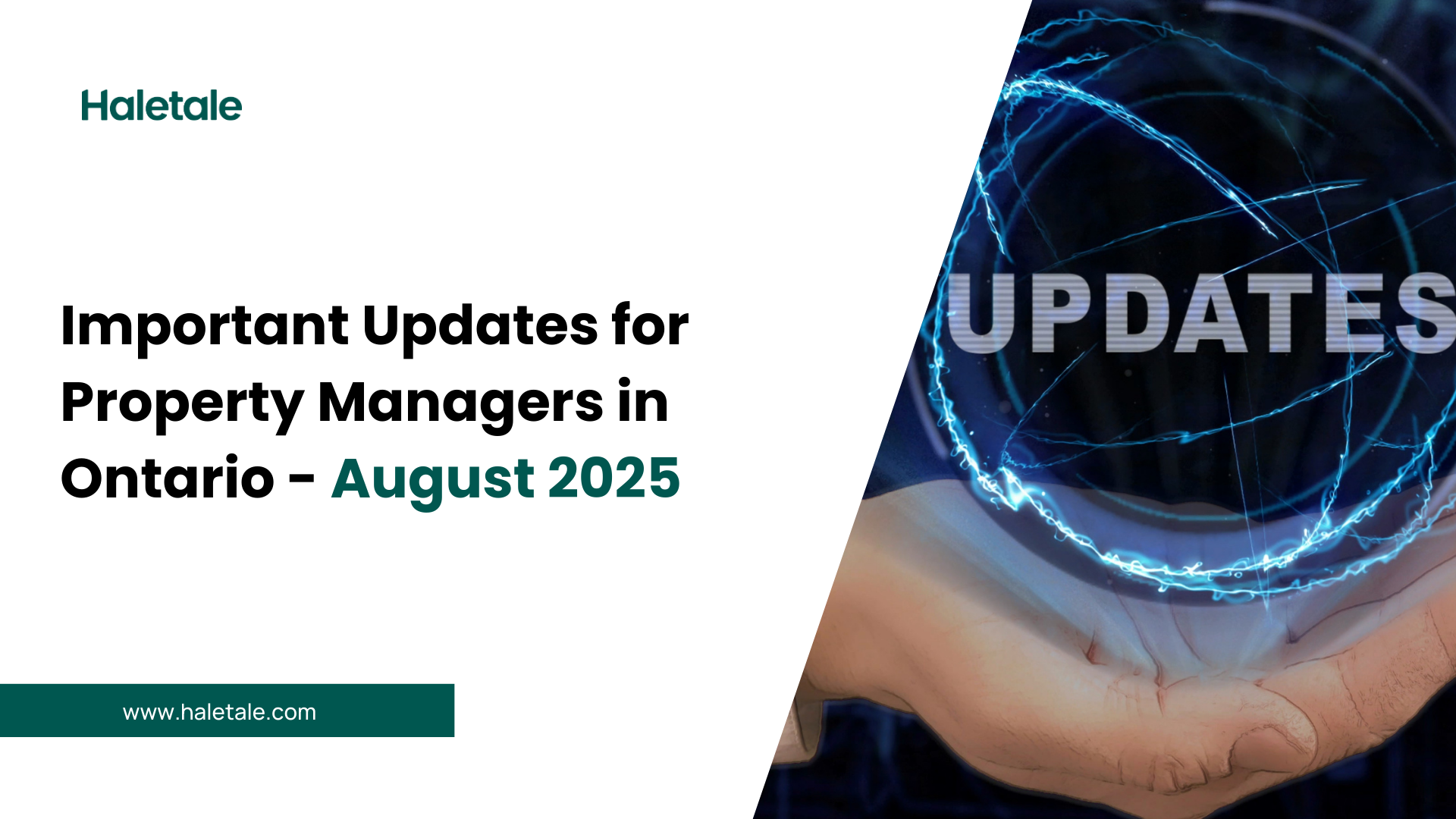Critical Updates & Compliance Reminders For Ontario Property Managers- August 2025
Ontario Lowers 2026 Rent Increase Cap to 2.1%
The Province just announced the 2026 rent increase guideline will be 2.1% – the lowest cap in four years. This represents a significant decrease from the current 2.5% cap and reflects the government’s response to economic uncertainty and tariff concerns affecting Ontario tenants.
Key Details:
- Applies to approximately 1.4 million rental households in rent-controlled units
- Units first occupied after November 15, 2018 remain exempt
- Action Required: Update your 2026 financial projections and tenant communications Source
Renoviction Enforcement Ramps Up Across Ontario
Municipal renoviction bylaws are now actively being enforced with significant penalties:
Toronto (Effective July 31, 2025):
- Rental Renovation Licence Bylaw already showing “noticeable effects” according to tenant advocates
- Fines up to $100,000 for non-compliance or bad-faith evictions
- Required: Building permits, detailed renovation plans, and proof of legitimate need
- Impact: City using “education-first approach” but enforcement action will follow
London (Effective March 2025):
- Rental Unit Repair License being added to Business Licensing Bylaw
- Targeting bad-faith evictions in response to 153 reported renovictions from 2017-2021
Hamilton (Active):
- Rental Housing Licensing pilot program underway in Wards 1, 8, and part of Ward 14
- Requires licenses for buildings with 5 or fewer units
Action Required: Review your renovation procedures and ensure compliance before issuing any N13 notices. Source
Current Rent Increase Compliance Checklist
For 2025 Increases (2.5% cap):
- Minimum 90 days written notice using proper N1 form
- Only once every 12 months per tenant
- Rent increases are not automatic or mandatory
Above Guideline Increases (AGI):
- Stricter documentation requirements in 2025 for capital repairs and operating costs
- Statutory declaration required for evidence
- Maximum 5.5% total increase (2.5% + 3% AGI cap) for 2025
Critical Reminder: Text messages, emails, or verbal rent increase notices are consistently found invalid by the LTB, even when tenants pay the increased amount.
Market Intelligence: Rental Landscape Shifts
Current Market Conditions:
- Ontario rental market showing “cooling” trends with more tenant choices
- Ontario home prices down 3.7% annually, with highest June inventory on record
- Slower population growth due to recent immigration policy changes
Strategic Response:
- Focus on property upgrades: energy-efficient appliances, updated interiors, enhanced security
- Prioritize excellent service: timely maintenance, responsive management, clear communication
- Leverage digital platforms: online listings, virtual tours, strong digital presence Source
Priority Action Items This Month
- Immediate: Verify all current rent increase notices use proper N1 forms and timing
- This Week: Review any planned renovations against new municipal licensing requirements
- August 30: Update 2026 budget models with 2.1% rent cap
- Q3 Planning: Assess portfolio for property improvement opportunities in cooling market
Compliance Resources
- Landlord & Tenant Board Forms: tribunalsontario.ca/ltb/forms
- Ontario Rent Guidelines: ontario.ca/page/residential-rent-increases
- Toronto Renoviction Bylaw: Contact MLS at 311 or toronto.ca
- Hamilton Licensing: hamilton.ca/build-invest-grow/starting-small-business/business-licences
- London Rental Repair License: london.ca business licensingOntario’s regulatory environment is tightening with lower rent caps, active renoviction enforcement, and stricter compliance requirements. Property managers who adapt proactively with proper documentation, tenant-focused service, and strategic improvements will maintain competitive advantages in the evolving market.
Questions? Stay informed on these rapidly changing regulations by monitoring official government announcements and consulting with qualified legal counsel when needed.
This alert is for informational purposes only and does not constitute legal advice. Always consult with qualified professionals for specific compliance guidance.









